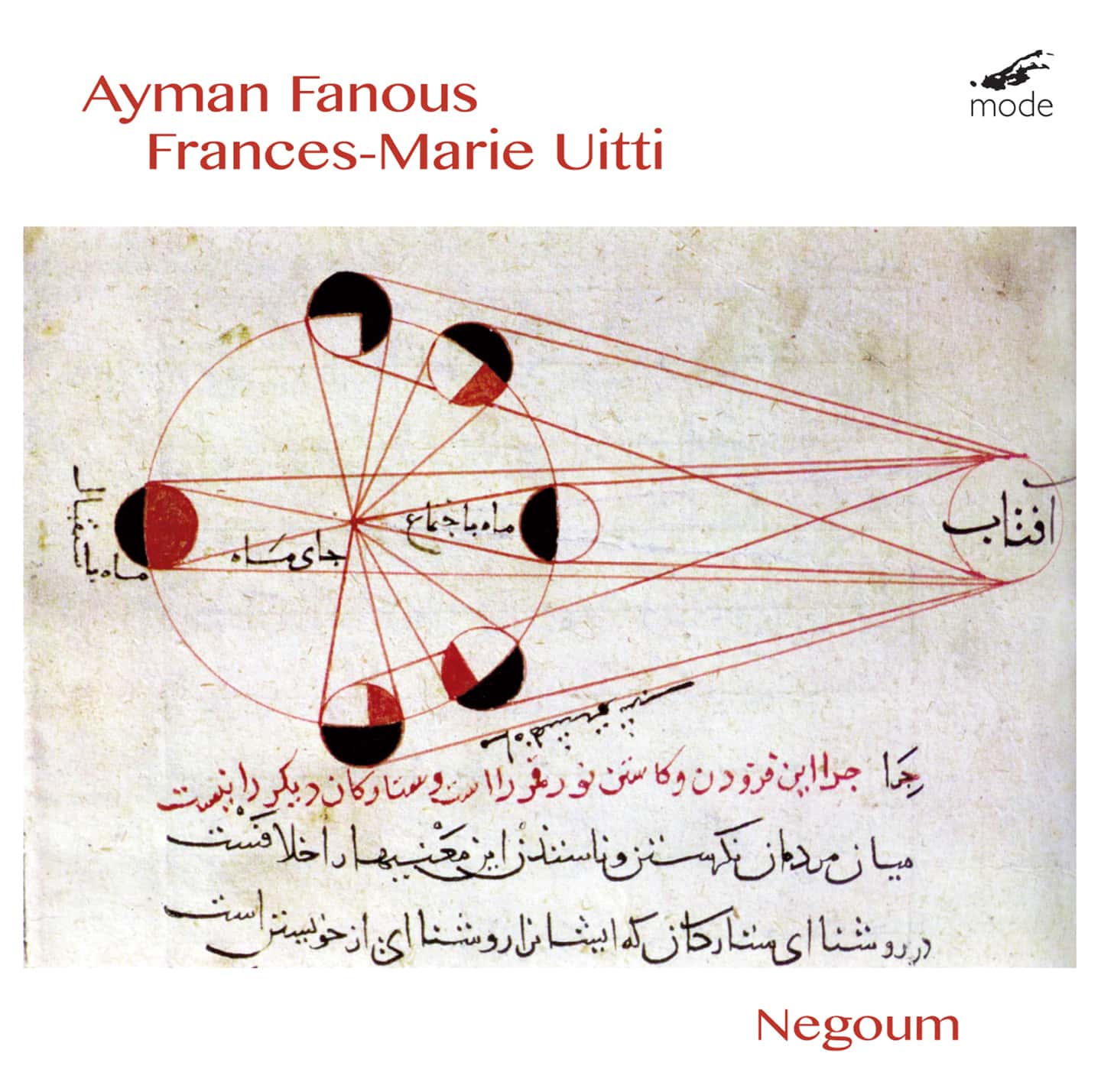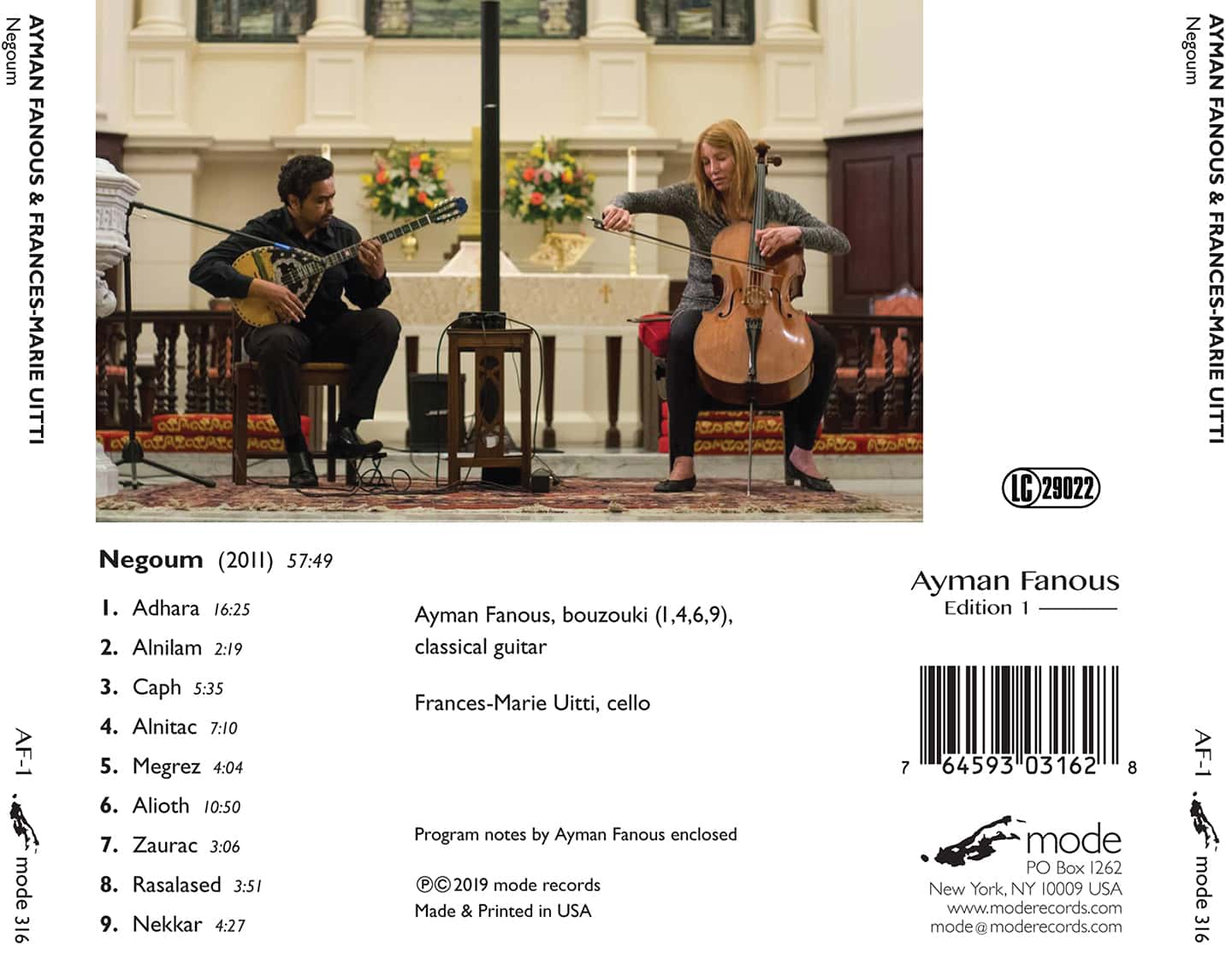mode 316 Ayman FANOUS & Frances-Marie UITTI: Fanous Edition 1: Negoum: 9 duo improvisations by Ayman Fanous (guitars, bouzouki) and Frances-Marie Uitti (cello)


Negoum
$14.99
mode 316 Ayman FANOUS & Frances-Marie UITTI: Fanous Edition 1: Negoum: 9 duo improvisations by Ayman Fanous (guitars, bouzouki) and Frances-Marie Uitti (cello)
In stock
“…it’s a process of mental elimination, resulting in music of astonishing subtlety.”
This album is the first studio recording of two seemingly disparate virtuosi—Egyptian-born, New York-based bouzouki/classical guitar player Ayman Fanous and American, France-based cellist Frances-Marie Uitti—sharing a dialogue of traditions and their unraveling. In the former vein, Fanous brings his knowledge of taksim (a style of melodic improvisation prevalent in Middle Eastern music) and Uitti hers of classical precision while in the latter both seem to become increasingly connected as they drift further from canonical moorings. In Uitti’s duets with bouzouki, such as the opening 16 minutes that are “Adhara”, self-examination prevails. As for the tracks featuring guitar in place of bouzouki, one senses that something beyond magical is taking place. Rather, it’s a process of mental elimination, resulting in music of astonishing subtlety.
For half the program, Uitti employs a two-bow technique of her own innovation. But one might never know it because she plays with such an integrated mode of expression that her gestures are organic, soulful. Every line stands precisely where it should be standing and rests where it should be resting. Fanous approaches the primal pluck with two rural exhalations for every urban inhalation, blending Western and non-Western persuasions without fraying a stitch.
While highlights may be pointed out—among them the quasi-triptych of “Alnitac”, “Megrez” and “Alioth” at album center—what we have here is something greater than the sum of its parts. These are musicians far less interested in defining anything in particular than in cracking open the very concept of definition like an egg and frying it on the pans of their instruments until its savor curls up to the fortunate listener. Proof that dualism needn’t be a constant negotiation of dominance but rather a cyclical process of translation by which the original utterance and its re-rendering become indistinguishable to the point of nourishing a universal form of communication.
— Tyran Grillo, New York Jazz Record, February 2020
